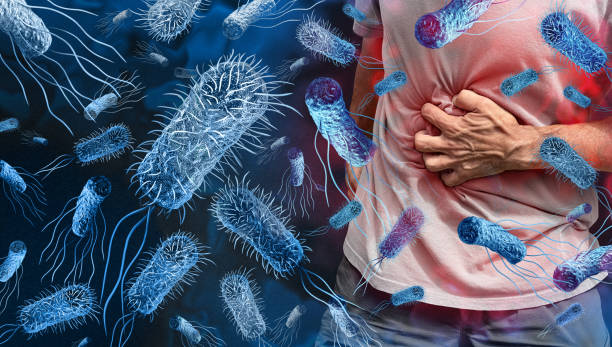
Hormonal balance, fertility and gut health are a vital part of women’s health. Emerging research has found that the gut microbiome, the trillions of microorganisms in the gut, play a significant role in hormone regulation and reproductive health. As a gastroenterologist and a gut health specialist, I have seen how this connection is a key factor affecting women’s health in a profound way.
The gut microbiome acts as a central hub of communication with other body systems, most notably the endocrine system. This is important for:
1. The Estrobolome: A Unique Microbial Function
The estrobolome is a part of the gut microbiome which is involved in the metabolism of estrogen. An imbalance in the gut bacteria, also known as dysbiosis, can lead to either estrogen dominance or deficiency. Both conditions can lead to ovulation, menstrual cycle and fertility issues.
2. Gut-Brain and Axis: The Impact of stress on the gut and hormones.
The vagus nerve uses biochemical signaling to send messages from the gut to the brain and vice versa. Poor gut health effects that communication and can cause elevated cortisol levels and increase stress, anxiety and depression. Chronic stress suppresses reproductive hormones and thus worsens the hormonal balance and fertility.
3. Insulin Resistance and PCOS
Gut dysbiosis has been linked to Polycystic Ovary Syndrome (PCOS) and to insulin resistance. PCOS is a leading a cause of infertility characterized by hormonal imbalances that disrupt ovulation. Improving gut health can enhance insulin sensitivity and help alleviate some of the symptoms of PCOS.
For women seeking to get pregnant, some important issues in hormonal health which are influenced by gut health are:
1. A balanced microbiome can be vital in maintaining quality of eggs.
Ovarian health and egg quality is affected by chronic systemic inflammation. Systemic inflammation can be caused by chronic gut inflammation associated with dysbiosis. A balanced gut microbiome can help mitigate inflammation which can affect the ovaries and reduce the quality of the eggs.
2. Endometrial Health
The gut microbiome’s function in regulating inflammation is important for the endometrium, the uterine lining where the embryo will implant. Chronic inflammation can lead to conditions such as endometriosis, which is a major problem for fertility. A healthy gut microbiome helps regulate the immune system and reduces inflammation, creating a better environment for ovulation and embryo implantation.
3. Microbiome and Sperm Interaction
New studies also show that the vaginal and uterine microbiota, which are determined by the gut health, interact with sperm and embryos. A proper microbial environment improves the chances of fertilization and implantation.
A nutrient-dense anti-inflammatory diet can help enhance gut health and, in turn, hormonal balance and fertility. Here are some tips to help you get started:
1. Prebiotic and Probiotic Foods
Prebiotics: These are foods such as fruits, vegetables, and whole grains such as rice, asparagus, and bananas that feed good bacteria in the gut.
Probiotics: These are beneficial bacteria that are introduced into the body through food products such as kombucha, sauerkraut and kimchi.
2. Fiber-Rich Foods
Fiber helps in removing excess estrogen from the body and in the maintenance of the gut lining. Soluble fiber is the food the good bacterial in the body like to eat, while insoluble fiber helps move the stool through the gut. Fiber rich foods Include whole grains, legumes and vegetables in your diet.
3. Healthy Fats
The omega-3 fatty acids that are found in fatty fish, flaxseeds and walnuts have an are important for hormonal health. Their anti-inflammatory properties help maintain a strong gut barrier. Their role helps ensures proper detoxification and gut microbiome balance leading to balanced hormone production. They reduce estrogen dominance, which is linked to PMS, PCOS, and endometriosis.
4. Avoiding some Gut Disruptors
Many processed foods contain xenoestrogens (synthetic chemicals that mimic estrogen) from plastic packaging, preservatives and artificial additives. These endocrine disruptors can cause: Irregular periods, Premenstrual Syndrome (PMS ), Fibroids, and Endometriosis. Excess estrogen also interferes with progesterone production, which is important for implantation and pregnancy.
Lifestyle factors that influence gut health are important for hormonal balance and fertility. The following are ways to optimize gut and hormonal health:
1. Prioritizing Sleep
Sleep is vital in maintaining gut health and hormonal balance. Lack of sleep can disrupt the gut microbiome and interfere with the production of hormones such as melatonin, cortisol, and reproductive hormones. Here are ways to optimize sleep:
2. Manage Stress
The following are some effective stress-management techniques that can be employed to optimize hormone balance:
Moderate exercise promotes gut health and improves insulin sensitivity, both of which are beneficial for hormonal and reproductive health.
During pregnancy the gut health of the mother and baby are critical. A healthy gut microbiome will help with:
There is a complex interrelationship between gut health, hormonal balance, and fertility. A holistic approach is vital to address all these important factors in women’s health and create health and vitality. Thus, taking care of your gut microbiome through a balanced diet, stress management techniques, adequate sleep, and moderate physical activity can go a long way in supporting hormonal equilibrium and fertility.
As an integrative gastroenterologist and a gut health specialist, I would like to encourage all women to take care of their gut health as doing so is crucial for overall wellness. Whether it is the case with hormonal imbalances, trying to conceive, or simply maintaining good health, maintaining a healthy gut microbiome is key.
Let us help. CALL NOW